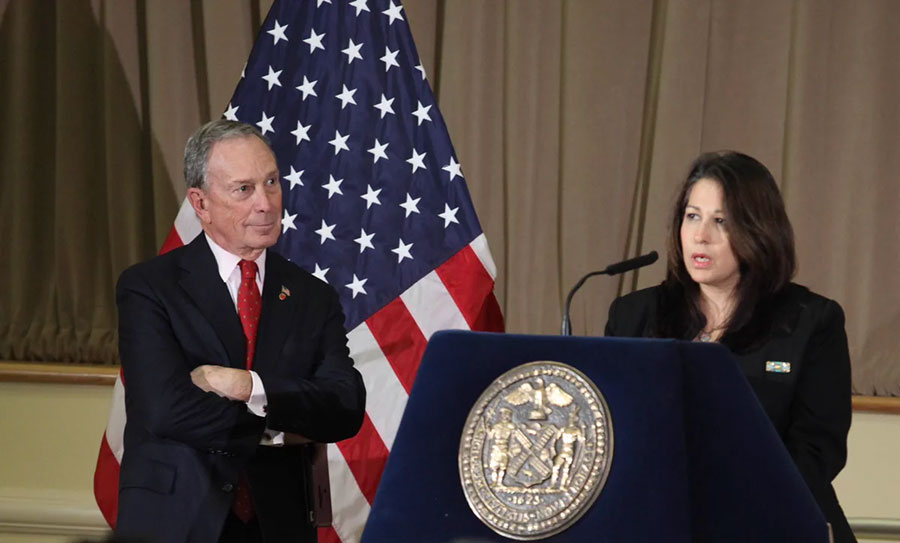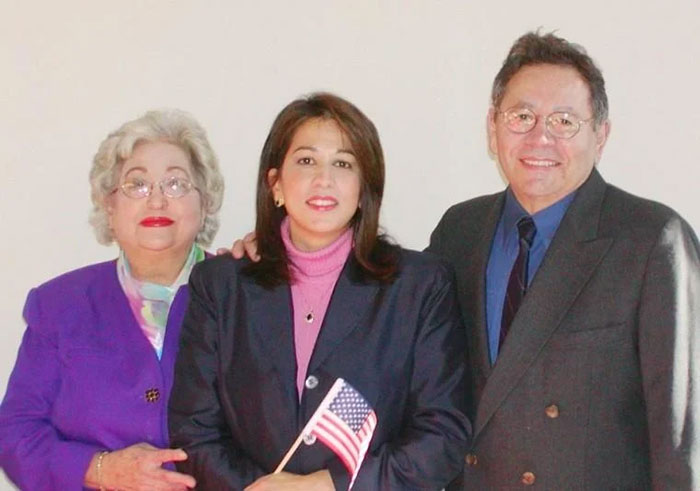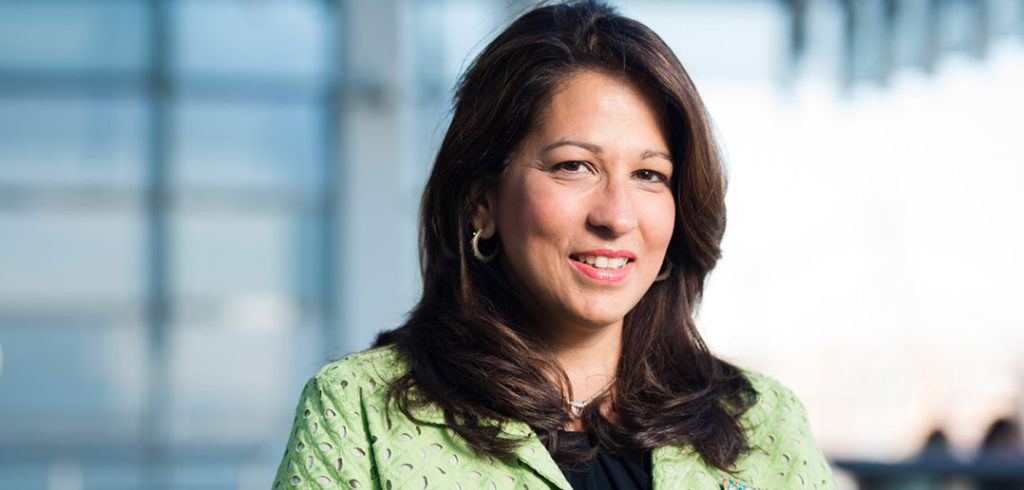“Carol Robles was a dynamo her entire life,” U.S. Supreme Court Justice Sonia Sotomayor said in a statement. “She devoted herself to public service and made a noteworthy difference both in the lives of Latinos and all New Yorkers. Her passing is a tragedy for her family and all of us.”
A 1983 graduate of Fordham College at Lincoln Center, Robles-Román served as deputy mayor for legal affairs during Michael R. Bloomberg’s three-term tenure as mayor, from 2002 through 2013. She was the highest-ranking Latina in city government at that time and the first woman ever to serve as counsel to a New York City mayor.
From City Hall, she oversaw more than a dozen agencies. Her accomplishments include launching the city’s Family Justice Centers to provide free, confidential, and comprehensive assistance to survivors of domestic violence. She also expanded the city’s language-translation services to better meet the needs of non-native English speakers. And she was instrumental in creating the Latin Media and Entertainment Commission to help “bring the best in Latin media and entertainment productions, businesses, and jobs” to the city.
After serving in the Bloomberg administration, she led two national civil rights organizations: Legal Momentum—the Women’s Legal Defense and Education Fund, and the Equal Rights Amendment Coalition/Fund for Women’s Equality. In recent years, she had been general counsel and dean of faculty at Hunter College. She also was a longtime member of the City University of New York Board of Trustees.
“Carol Robles-Román dedicated her life to public service and to making our city and country more equal and just,” Bloomberg wrote in a statement, citing her “groundbreaking work to make the city more accessible to our … immigrant and disabled communities, and to stop domestic violence and human trafficking.”

In a 2015 profile in Fordham Magazine, Robles-Román described her approach to identifying societal problems and mobilizing both the political will and the means to fix them.
“Part of my ethos is being a disruptor—in a nice, good way,” she said. “It’s about creating strategic partnerships to make change happen.”
‘Women Can Have a Powerful Voice’
Robles-Román was born in East New York, Brooklyn, on August 27, 1962. Her parents, Emilio and Inéz Robles, owned an insurance brokerage and travel agency, and they were engaged with multiple local civic groups focused on voter registration, housing, and health care, among other issues. They had migrated to New York City from their native Puerto Rico in the mid-1950s, and in the early 1970s, they moved the family to Howard Beach, Queens.
“My mother raised six children—five girls—so it was particularly important to her to teach us, as women of color, that women can have a voice and can have a powerful voice,” Robles-Román once said. “Many women never learn that. That’s the gift she gave me.”

A Puerto Rican Power Couple
After graduating from Stella Maris High School in 1979, Robles-Román enrolled at Fordham College at Lincoln Center, where she majored in political science and media studies.
“I felt very, very comfortable speaking in my own voice and being assertive, and in pursuing my joint passions: civics issues and writing,” she told Fordham Magazine in 2002.
In an international law class, she introduced herself to Nelson Román, FCRH ’84, a fellow student of Puerto Rican descent who would become her husband in 1991. Román, who is now a federal judge in the Southern District of New York, worked as a police officer in the Bronx while he was enrolled at Fordham. He told her what he witnessed while responding to domestic violence calls, and the stories he shared left her bothered but determined to help. She researched best practices for handling such incidents and published her work in a Fordham pre-law journal.
“Ever since then, domestic violence and the treatment of women has been an issue that she’s held very close to her soul,” Román told Fordham Magazine in 2015.
A Champion of Sonia Sotomayor
After graduating from Fordham, Robles-Román worked as a paralegal and eventually earned a J.D. from New York University. In the mid-1990s, she met Sonia Sotomayor, then a federal district court judge, through the Puerto Rican Bar Association. Like many young lawyers in the bar association at the time, she came to regard Sotomayor as a mentor.
“She’s a very warm woman, she’s a very nurturing woman, and she also shared her substantive legal intellect with us very early on,” Robles-Román told CNN in 2013.
In the late 1990s, when Nelson Román was president of the Puerto Rican Bar Association, he and Robles-Román helped lead a grassroots campaign to get a Latino justice on the Supreme Court. Sotomayor was on their short list.
A decade later, in May 2009, when President Barack Obama nominated Sotomayor to serve on the nation’s highest court, Robles-Román helped prepare Bloomberg to speak at a congressional hearing in support of her nomination. Three months later, she became the first Latina Supreme Court justice in U.S. history.
“I felt like this is the message Judge Román and I had been sending our whole lives,” Robles-Román said in 2010. “We have excellent Hispanic judges and attorneys, and it feels like it’s been our job to shine a light on that.”
Prior to joining the Bloomberg administration, Robles-Román served as a senior attorney to a family court judge and as special counsel and eventually director of public affairs for the New York State Unified Court System, where she focused on bias matters, among other issues. She also served as a New York state assistant attorney general in the state’s civil rights bureau.
A Mentor to Young People
During her tenure as deputy mayor of New York City, Robles-Román created what she called her Girl Power School talk, which she presented primarily to middle and high schoolers. She encouraged them to focus on the steps—like writing a resume, finding mentors, and developing a network—that will lead them from the classroom to careers of influence.
“Many young women think that people walk around with tags on them that say, ‘I’ll be your mentor.’ I help them empower themselves to say, ‘Hey, I like that teacher. … I’m going to make an appointment and ask that teacher to mentor me … and to give me advice and to help me as my career proceeds,” she told CNN.
In the 2015 Fordham Magazine interview, she added another piece of advice she often shared with young people: “Don’t be shy,” she said. “Do. Not. Be. Shy.”
Robles-Román is survived by her husband, Nelson; their two children, Ariana and Andrés; four sisters; and four nieces and nephews.


